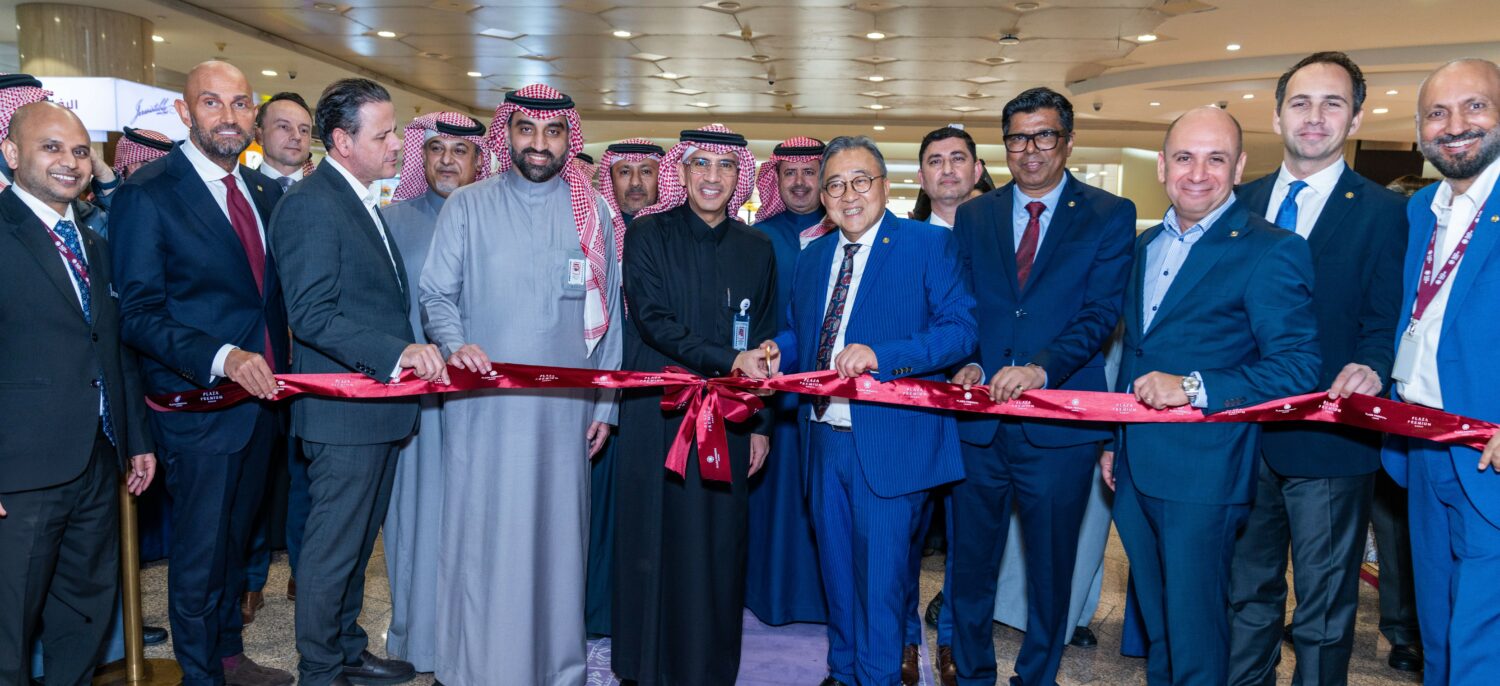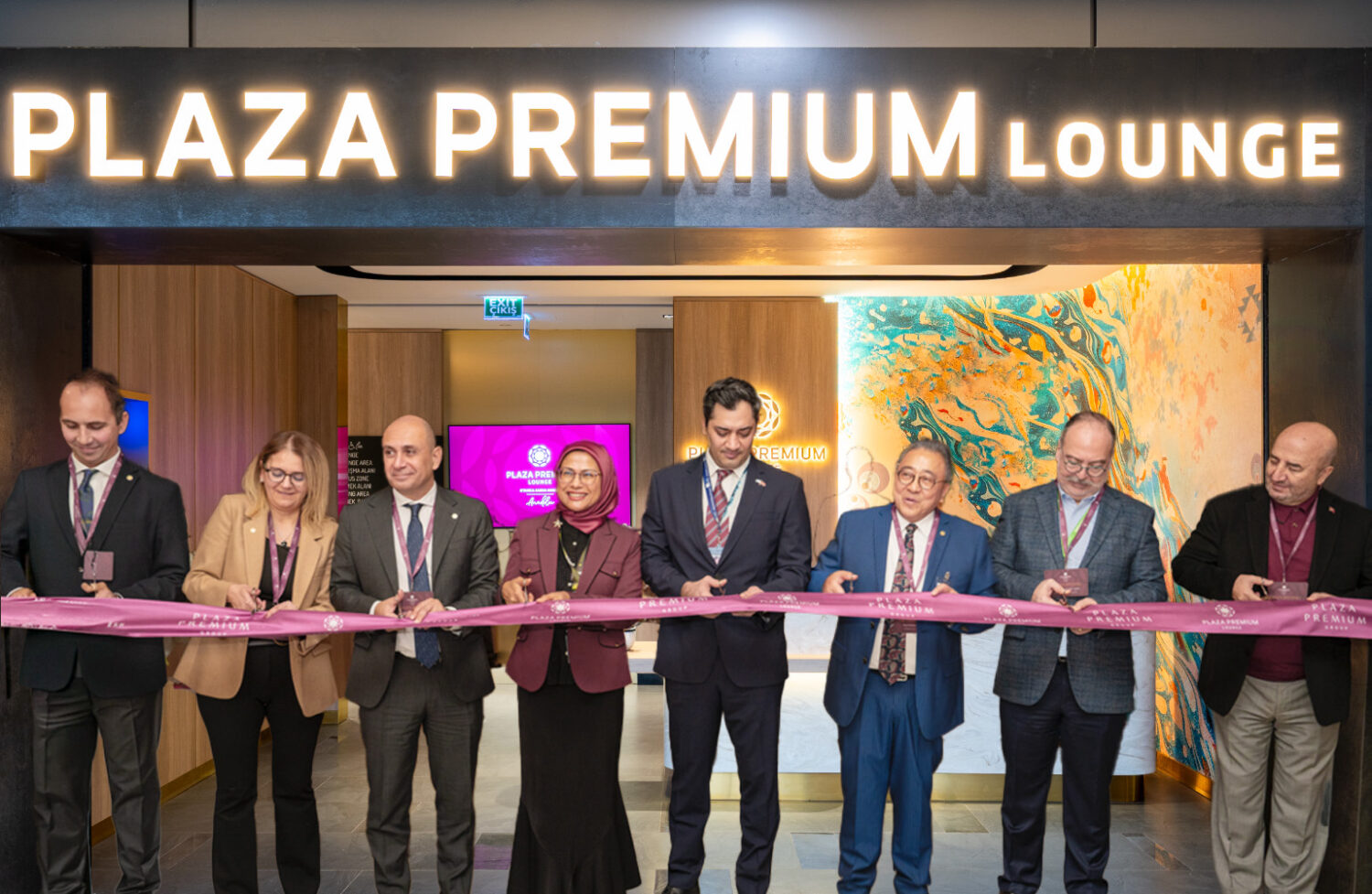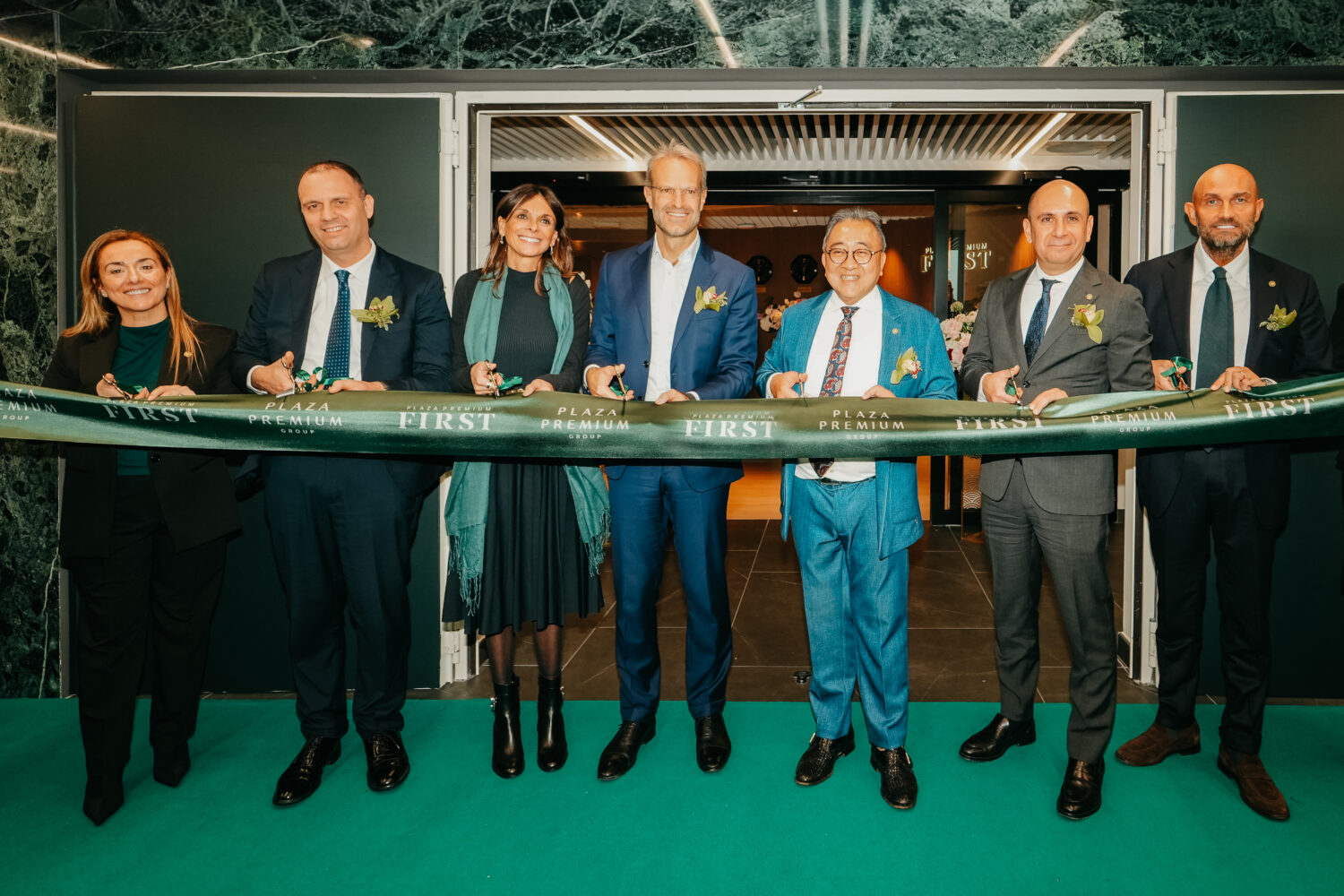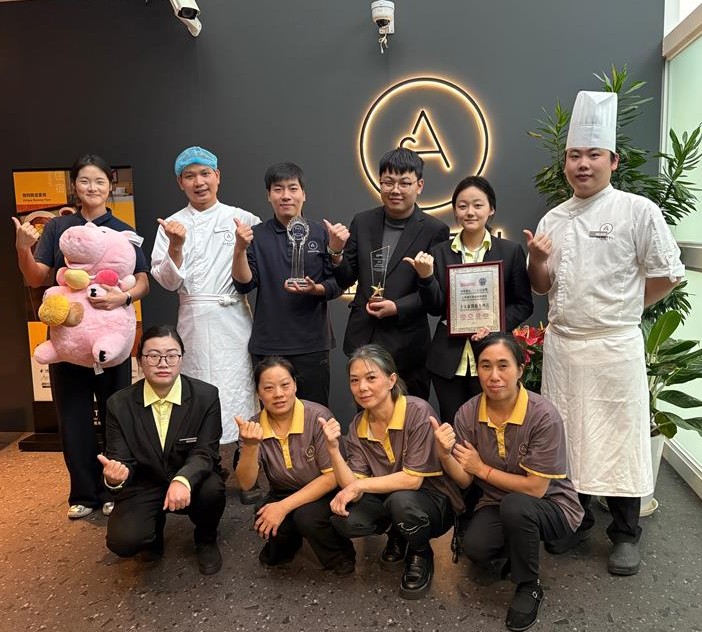Technology is one of the three pillars in the Plaza Premium Group future strategy. Prasan Verma, who champions the ‘technology’ has spent more than 25 years in aviation information technology, having held senior roles at Air India, Vistara and Tata Consultancy Services. He has led Commercial and Operations IT, project management, and consulting for various airlines, and has been recognised for his innovative solutions including the Covid Management Solution. As CTO at PPG, his role includes partnering with other key leaders for digital transformation and also for commercialising PPG’s Technology Solutions to propel PPG into the next 25 years.
1._As the CTO, how are you leading the application of tech, innovation and digitalisation at PPG?
As the CTO of PPG, my role is to develop and implement digital strategies aligned to our company’s vision. This includes identifying new technology trends suitable for our organisation, as well as opportunities to leverage technology for competitive advantages including Revenue Generation, Customer Experience, Operational Excellence and Cost Leadership.
Over the years, PPG has made significant investments in digital technologies including customer facing applications, cloud as well as employee facing applications. From Artificial Intelligence-based chatbots to robotic chefs, we are making sure that we are ahead of the curve in technology adoption.
Digital transformation is a unique journey within every company. A consumer-centered approach and the integration of digital technologies represent an intelligent strategy that ensures the competitiveness, development, and profitability of any business in the current digital context. We are constantly exploring technologies such as AI and Machine Learning together with the internet of things and big data. Augmented and virtual reality are enablers for the approach and investment in the traveler’s experience.
In PPG, digital transformation is no more a “once in a while” program, instead it has become a way of life.
2._You’re an experienced travel industry professional. How has tech changed the industry, and what do you think is the most significant development?
Being one of the first industries that started using digital technologies for booking travel products online, digitalisation is critical for our travel and hospitality industry. Our industry is at the forefront of digital innovation and continues to be transformed by new technologies in virtually every aspect of its operations.
Travel is no longer considered as mere transportation from point A to B. Instead, it has become an experience right from booking through digital channels, various services such as check-in, meet & greet, lounges at the airport to post-travel interaction such as loyalty and customer feedback. The travel industry has been using digital technologies such as big data analysis, AI, cloud computing, virtual and augmented reality to increase the productivity, innovation, and opportunities to generate income, simultaneously with the elimination of complexity among the processes within the ecosystem.
I believe that AI/Machine Learning is becoming the game changer for the travel industry as organisations tend to identify their customer early to deliver personalised offerings. Travel companies are working relentlessly to identify their customers during the inspiration phase itself and engage them with more personalised offers. This requires the collection and processing of large amounts of data from various sources to derive the information. Luckily, both hardware and software technologies are now able to process large amounts of data. The rise of social media-based feedback has forced companies to invest in technologies such as machine learning to build automated responses through chatbots as well as addressing the needs quickly. Customer feedback is heavily impacting the business as customers tend to do their research before making any decisions. Customer ratings have become one of the most important criteria in choosing any option.
3._Many traveler surveys show that expectations have changed, especially post-Covid, to seeking travel experiences that are seamless and personalised. While travelers still want human contact, they also seek services that can be controlled by a tap on their phones. How is PPG meeting these expectations?
The global travel and hospitality industry, after experiencing significant growth from 2016 to 2019, faced a profound setback in 2020 due to the unprecedented challenges posed by the Covid-19 pandemic. Nearly four years later, signs of recovery are gradually emerging in both domestic and international travel. However, Covid has permanently changed the digital landscape as contactless interaction has become the priority.
Today the customer expects the organisation to know them well. This means that the organisation needs to build the Single Customer View to identify the customer uniquely and then make the information available at all the touch points for personalised offerings and services. In the face of the rise of digital-native companies, traditional players within the travel and hospitality industry are forced to re-evaluate their business models and embrace digital solutions, processes, and technologies.
Amid generational changes in traveler demands and behaviours, rapid advancements in automation and AI, and persistent volatility in the economy, digital transformation has become a way of life.
Today’s travelers rely heavily on digital channels and are becoming increasingly demanding in terms of how they interact with tourism enterprises. Therefore, digital technologies ensure permanent contact with travelers and a business model capable of meeting the most demanding requirements, creating unforgettable experiences for tourists.
4._PPG is seeking to own the entire airport journey, starting from the time a traveler leaves their home to arriving at their destination. Can you explain how tech plays into this ecosystem?
As we aspire to Make Travel Better, we are continuously evolving as an organisation with end-to-end solutions for Airport Passenger Services from Meet and Greet to Lounges to Airport Hotels. To provide a seamless customer experience across various touch points, we are partnering with companies with an innovative mindset and at the same time, nurturing in-house talent to build cutting-edge solutions. We have pioneered an end-to-end airport passenger service system called oneTECO with offer & order management as well as Service Delivery Platform. We have also developed our own Lounge Management System which is integrated with many financial institutions. PPG has also developed its own Loyalty Program Smart Traveller.
5._What tech excites you the most in your role?
I am lucky to be part of this era where both software and hardware capabilities are almost limitless. In my opinion, the availability of AI-as-a-service for day-to-day work has changed the game. Companies are striving for more and more AI adoption. However, the investment around AI must be aligned to the company’s strategy and ROI must be clearly defined. We at PPG are continuously exploring technologies such as AI/ML, Big Data, Robotics etc to improve our operations.
As far as Artificial Intelligence in concerned, there are both hype and reality attached to it. There has been significant media attention and excitement around the potential of AI, sometimes overstating its current capabilities such as AI achieving “human-level” intelligence. At the same time, AI has made significant advancements in recent years, with impressive capabilities in narrow domains like game-playing, image recognition, language processing, and certain types of decision-making. As a technologist, I am particularly excited with AI capabilities in medical science with some success in early detection of diseases like cancer. Also, AI is already being used in various real-world applications, such as personalised recommendations and fraud detection, which is very relevant to our business. In a nutshell, practical use of AI would be the key for adoption. But it’s important to focus on the development of safe and ethical AI systems.
Technology is one of the three pillars in the Plaza Premium Group future strategy. Prasan Verma, who champions the ‘technology’ has spent more than 25 years in aviation information technology, having held senior roles at Air India, Vistara and Tata Consultancy Services. He has led Commercial and Operations IT, project management, and consulting for various airlines, and has been recognised for his innovative solutions including the Covid Management Solution. As CTO at PPG, his role includes partnering with other key leaders for digital transformation and also for commercialising PPG’s Technology Solutions to propel PPG into the next 25 years.
1._As the CTO, how are you leading the application of tech, innovation and digitalisation at PPG?
As the CTO of PPG, my role is to develop and implement digital strategies aligned to our company’s vision. This includes identifying new technology trends suitable for our organisation, as well as opportunities to leverage technology for competitive advantages including Revenue Generation, Customer Experience, Operational Excellence and Cost Leadership.
Over the years, PPG has made significant investments in digital technologies including customer facing applications, cloud as well as employee facing applications. From Artificial Intelligence-based chatbots to robotic chefs, we are making sure that we are ahead of the curve in technology adoption.
Digital transformation is a unique journey within every company. A consumer-centered approach and the integration of digital technologies represent an intelligent strategy that ensures the competitiveness, development, and profitability of any business in the current digital context. We are constantly exploring technologies such as AI and Machine Learning together with the internet of things and big data. Augmented and virtual reality are enablers for the approach and investment in the traveler’s experience.
In PPG, digital transformation is no more a “once in a while” program, instead it has become a way of life.
2._You’re an experienced travel industry professional. How has tech changed the industry, and what do you think is the most significant development?
Being one of the first industries that started using digital technologies for booking travel products online, digitalisation is critical for our travel and hospitality industry. Our industry is at the forefront of digital innovation and continues to be transformed by new technologies in virtually every aspect of its operations.
Travel is no longer considered as mere transportation from point A to B. Instead, it has become an experience right from booking through digital channels, various services such as check-in, meet & greet, lounges at the airport to post-travel interaction such as loyalty and customer feedback. The travel industry has been using digital technologies such as big data analysis, AI, cloud computing, virtual and augmented reality to increase the productivity, innovation, and opportunities to generate income, simultaneously with the elimination of complexity among the processes within the ecosystem.
I believe that AI/Machine Learning is becoming the game changer for the travel industry as organisations tend to identify their customer early to deliver personalised offerings. Travel companies are working relentlessly to identify their customers during the inspiration phase itself and engage them with more personalised offers. This requires the collection and processing of large amounts of data from various sources to derive the information. Luckily, both hardware and software technologies are now able to process large amounts of data. The rise of social media-based feedback has forced companies to invest in technologies such as machine learning to build automated responses through chatbots as well as addressing the needs quickly. Customer feedback is heavily impacting the business as customers tend to do their research before making any decisions. Customer ratings have become one of the most important criteria in choosing any option.
3._Many traveler surveys show that expectations have changed, especially post-Covid, to seeking travel experiences that are seamless and personalised. While travelers still want human contact, they also seek services that can be controlled by a tap on their phones. How is PPG meeting these expectations?
The global travel and hospitality industry, after experiencing significant growth from 2016 to 2019, faced a profound setback in 2020 due to the unprecedented challenges posed by the Covid-19 pandemic. Nearly four years later, signs of recovery are gradually emerging in both domestic and international travel. However, Covid has permanently changed the digital landscape as contactless interaction has become the priority.
Today the customer expects the organisation to know them well. This means that the organisation needs to build the Single Customer View to identify the customer uniquely and then make the information available at all the touch points for personalised offerings and services. In the face of the rise of digital-native companies, traditional players within the travel and hospitality industry are forced to re-evaluate their business models and embrace digital solutions, processes, and technologies.
Amid generational changes in traveler demands and behaviours, rapid advancements in automation and AI, and persistent volatility in the economy, digital transformation has become a way of life.
Today’s travelers rely heavily on digital channels and are becoming increasingly demanding in terms of how they interact with tourism enterprises. Therefore, digital technologies ensure permanent contact with travelers and a business model capable of meeting the most demanding requirements, creating unforgettable experiences for tourists.
4._PPG is seeking to own the entire airport journey, starting from the time a traveler leaves their home to arriving at their destination. Can you explain how tech plays into this ecosystem?
As we aspire to Make Travel Better, we are continuously evolving as an organisation with end-to-end solutions for Airport Passenger Services from Meet and Greet to Lounges to Airport Hotels. To provide a seamless customer experience across various touch points, we are partnering with companies with an innovative mindset and at the same time, nurturing in-house talent to build cutting-edge solutions. We have pioneered an end-to-end airport passenger service system called oneTECO with offer & order management as well as Service Delivery Platform. We have also developed our own Lounge Management System which is integrated with many financial institutions. PPG has also developed its own Loyalty Program Smart Traveller.
5._What tech excites you the most in your role?
I am lucky to be part of this era where both software and hardware capabilities are almost limitless. In my opinion, the availability of AI-as-a-service for day-to-day work has changed the game. Companies are striving for more and more AI adoption. However, the investment around AI must be aligned to the company’s strategy and ROI must be clearly defined. We at PPG are continuously exploring technologies such as AI/ML, Big Data, Robotics etc to improve our operations.
As far as Artificial Intelligence in concerned, there are both hype and reality attached to it. There has been significant media attention and excitement around the potential of AI, sometimes overstating its current capabilities such as AI achieving “human-level” intelligence. At the same time, AI has made significant advancements in recent years, with impressive capabilities in narrow domains like game-playing, image recognition, language processing, and certain types of decision-making. As a technologist, I am particularly excited with AI capabilities in medical science with some success in early detection of diseases like cancer. Also, AI is already being used in various real-world applications, such as personalised recommendations and fraud detection, which is very relevant to our business. In a nutshell, practical use of AI would be the key for adoption. But it’s important to focus on the development of safe and ethical AI systems.
Technology is one of the three pillars in the Plaza Premium Group future strategy. Prasan Verma, who champions the ‘technology’ has spent more than 25 years in aviation information technology, having held senior roles at Air India, Vistara and Tata Consultancy Services. He has led Commercial and Operations IT, project management, and consulting for various airlines, and has been recognised for his innovative solutions including the Covid Management Solution. As CTO at PPG, his role includes partnering with other key leaders for digital transformation and also for commercialising PPG’s Technology Solutions to propel PPG into the next 25 years.
1._As the CTO, how are you leading the application of tech, innovation and digitalisation at PPG?
As the CTO of PPG, my role is to develop and implement digital strategies aligned to our company’s vision. This includes identifying new technology trends suitable for our organisation, as well as opportunities to leverage technology for competitive advantages including Revenue Generation, Customer Experience, Operational Excellence and Cost Leadership.
Over the years, PPG has made significant investments in digital technologies including customer facing applications, cloud as well as employee facing applications. From Artificial Intelligence-based chatbots to robotic chefs, we are making sure that we are ahead of the curve in technology adoption.
Digital transformation is a unique journey within every company. A consumer-centered approach and the integration of digital technologies represent an intelligent strategy that ensures the competitiveness, development, and profitability of any business in the current digital context. We are constantly exploring technologies such as AI and Machine Learning together with the internet of things and big data. Augmented and virtual reality are enablers for the approach and investment in the traveler’s experience.
In PPG, digital transformation is no more a “once in a while” program, instead it has become a way of life.
2._You’re an experienced travel industry professional. How has tech changed the industry, and what do you think is the most significant development?
Being one of the first industries that started using digital technologies for booking travel products online, digitalisation is critical for our travel and hospitality industry. Our industry is at the forefront of digital innovation and continues to be transformed by new technologies in virtually every aspect of its operations.
Travel is no longer considered as mere transportation from point A to B. Instead, it has become an experience right from booking through digital channels, various services such as check-in, meet & greet, lounges at the airport to post-travel interaction such as loyalty and customer feedback. The travel industry has been using digital technologies such as big data analysis, AI, cloud computing, virtual and augmented reality to increase the productivity, innovation, and opportunities to generate income, simultaneously with the elimination of complexity among the processes within the ecosystem.
I believe that AI/Machine Learning is becoming the game changer for the travel industry as organisations tend to identify their customer early to deliver personalised offerings. Travel companies are working relentlessly to identify their customers during the inspiration phase itself and engage them with more personalised offers. This requires the collection and processing of large amounts of data from various sources to derive the information. Luckily, both hardware and software technologies are now able to process large amounts of data. The rise of social media-based feedback has forced companies to invest in technologies such as machine learning to build automated responses through chatbots as well as addressing the needs quickly. Customer feedback is heavily impacting the business as customers tend to do their research before making any decisions. Customer ratings have become one of the most important criteria in choosing any option.
3._Many traveler surveys show that expectations have changed, especially post-Covid, to seeking travel experiences that are seamless and personalised. While travelers still want human contact, they also seek services that can be controlled by a tap on their phones. How is PPG meeting these expectations?
The global travel and hospitality industry, after experiencing significant growth from 2016 to 2019, faced a profound setback in 2020 due to the unprecedented challenges posed by the Covid-19 pandemic. Nearly four years later, signs of recovery are gradually emerging in both domestic and international travel. However, Covid has permanently changed the digital landscape as contactless interaction has become the priority.
Today the customer expects the organisation to know them well. This means that the organisation needs to build the Single Customer View to identify the customer uniquely and then make the information available at all the touch points for personalised offerings and services. In the face of the rise of digital-native companies, traditional players within the travel and hospitality industry are forced to re-evaluate their business models and embrace digital solutions, processes, and technologies.
Amid generational changes in traveler demands and behaviours, rapid advancements in automation and AI, and persistent volatility in the economy, digital transformation has become a way of life.
Today’s travelers rely heavily on digital channels and are becoming increasingly demanding in terms of how they interact with tourism enterprises. Therefore, digital technologies ensure permanent contact with travelers and a business model capable of meeting the most demanding requirements, creating unforgettable experiences for tourists.
4._PPG is seeking to own the entire airport journey, starting from the time a traveler leaves their home to arriving at their destination. Can you explain how tech plays into this ecosystem?
As we aspire to Make Travel Better, we are continuously evolving as an organisation with end-to-end solutions for Airport Passenger Services from Meet and Greet to Lounges to Airport Hotels. To provide a seamless customer experience across various touch points, we are partnering with companies with an innovative mindset and at the same time, nurturing in-house talent to build cutting-edge solutions. We have pioneered an end-to-end airport passenger service system called oneTECO with offer & order management as well as Service Delivery Platform. We have also developed our own Lounge Management System which is integrated with many financial institutions. PPG has also developed its own Loyalty Program Smart Traveller.
5._What tech excites you the most in your role?
I am lucky to be part of this era where both software and hardware capabilities are almost limitless. In my opinion, the availability of AI-as-a-service for day-to-day work has changed the game. Companies are striving for more and more AI adoption. However, the investment around AI must be aligned to the company’s strategy and ROI must be clearly defined. We at PPG are continuously exploring technologies such as AI/ML, Big Data, Robotics etc to improve our operations.
As far as Artificial Intelligence in concerned, there are both hype and reality attached to it. There has been significant media attention and excitement around the potential of AI, sometimes overstating its current capabilities such as AI achieving “human-level” intelligence. At the same time, AI has made significant advancements in recent years, with impressive capabilities in narrow domains like game-playing, image recognition, language processing, and certain types of decision-making. As a technologist, I am particularly excited with AI capabilities in medical science with some success in early detection of diseases like cancer. Also, AI is already being used in various real-world applications, such as personalised recommendations and fraud detection, which is very relevant to our business. In a nutshell, practical use of AI would be the key for adoption. But it’s important to focus on the development of safe and ethical AI systems.



